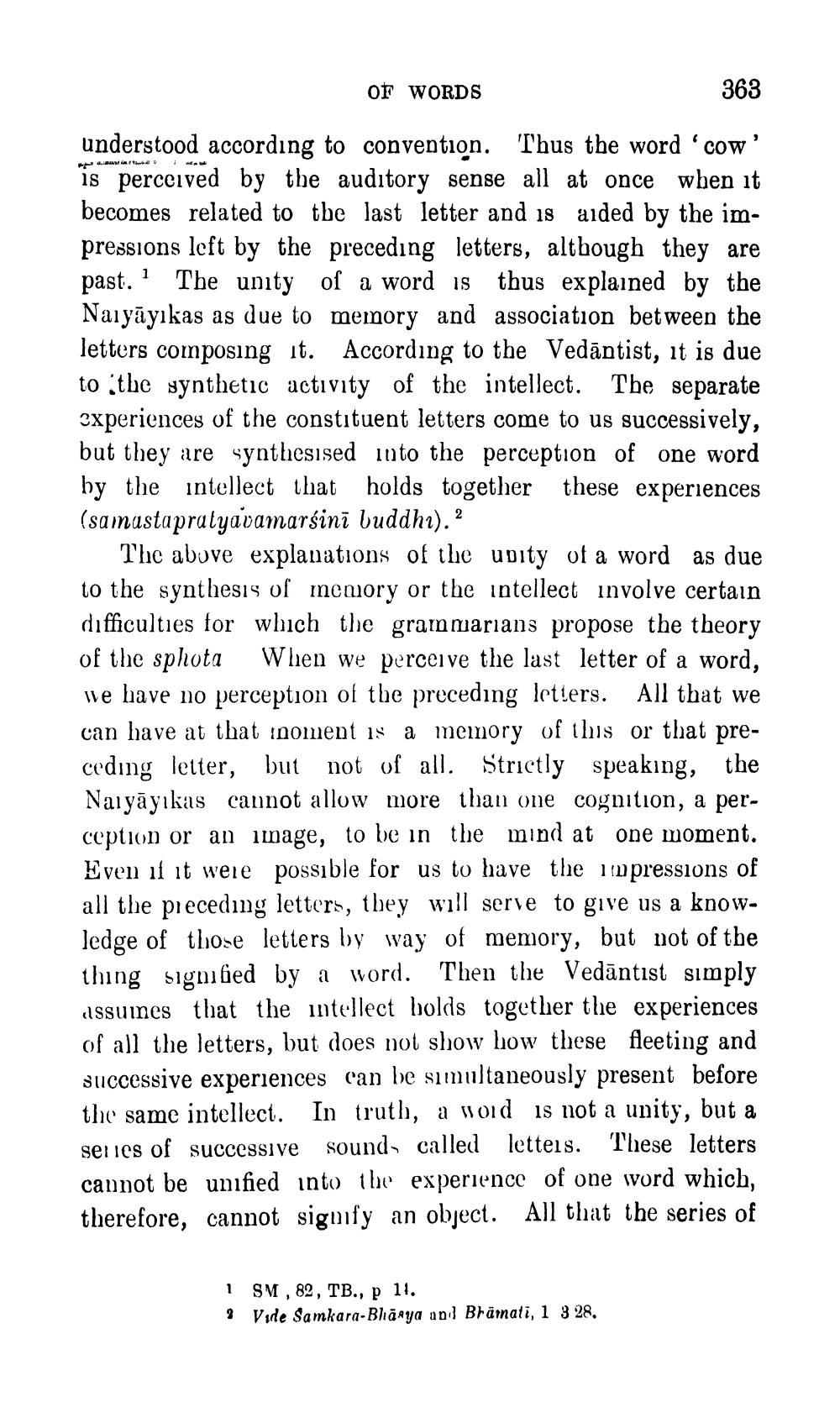________________
OF WORDS
363
understood according to convention. Thus the word 'cow' is perceived by the auditory sense all at once when it becomes related to the last letter and is aided by the impressions left by the preceding letters, although they are past. The unity of a word is thus explained by the Naiyāyikas as due to memory and association between the letters composing it. According to the Vedāntist, it is due to the synthetic activity of the intellect. The separate experiences of the constituent letters come to us successively, but they are synthesised into the perception of one word by the intellect that holds together these experiences (samustapratyavamarsinī buddhi). 2
The above explanations of the unity of a word as due to the synthesis of memory or the intellect involve certain difficulties for which the grammarians propose the theory of the sphota When we perceive the last letter of a word, we have no perception of the preceding letters. All that we can have at that inoment is a memory of this or that preceding letter, but not of all. Strictly speaking, the Naiyāyikas cannot allow more than one cognition, a perception or an image, to be in the mind at one moment. Even if it were possible for us to have the impressions of all the preceding letters, they will serve to give us a knowledge of those letters by way of memory, but not of the thing signified by a word. Then the Vedāntist simply vissuines that the intellect bolds together the experiences of all the letters, but does not show how these fleeting and successive experiences can be simultaneously present before the same intellect. In truth, a word is not a unity, but a seues of successive sounds called letters. These letters cannot be unified into the experience of one word which, therefore, cannot signify an object. All that the series of
1 SM , 82, TB., p 11. 3 Vide Samkara-Blänya and Brämati, 1 3 28.




